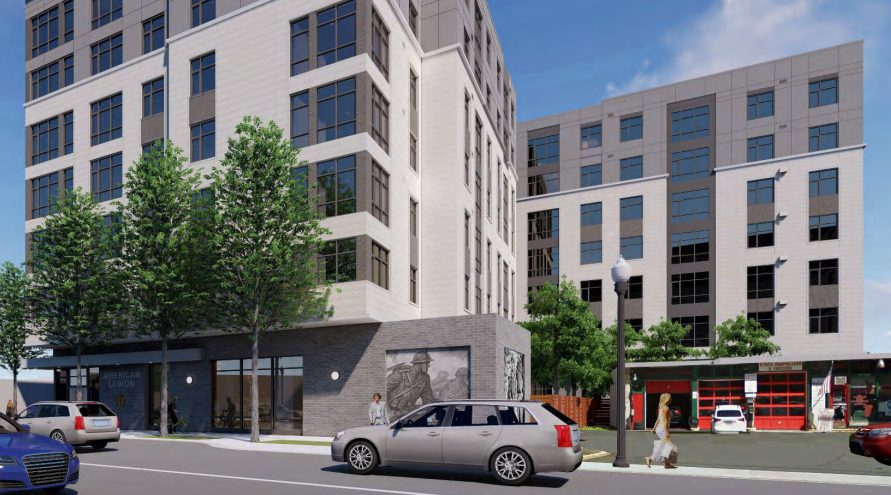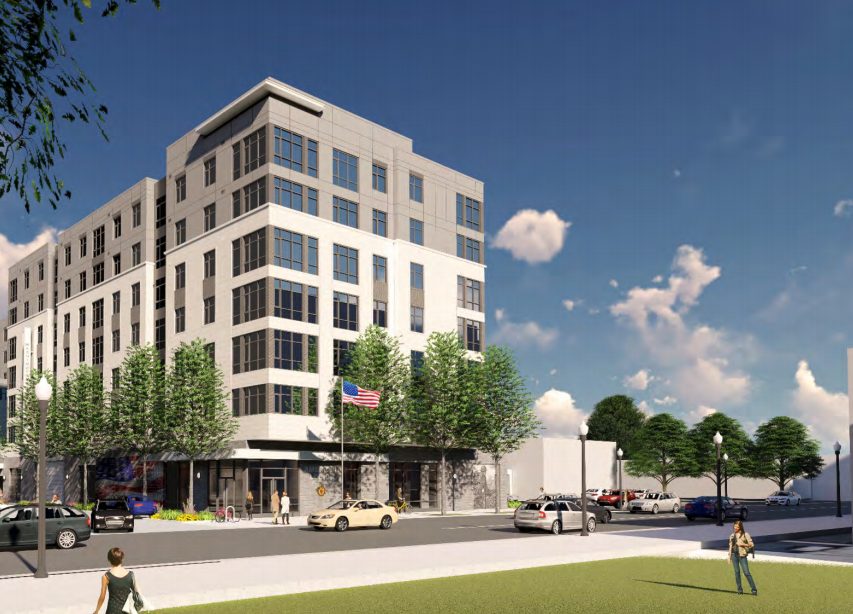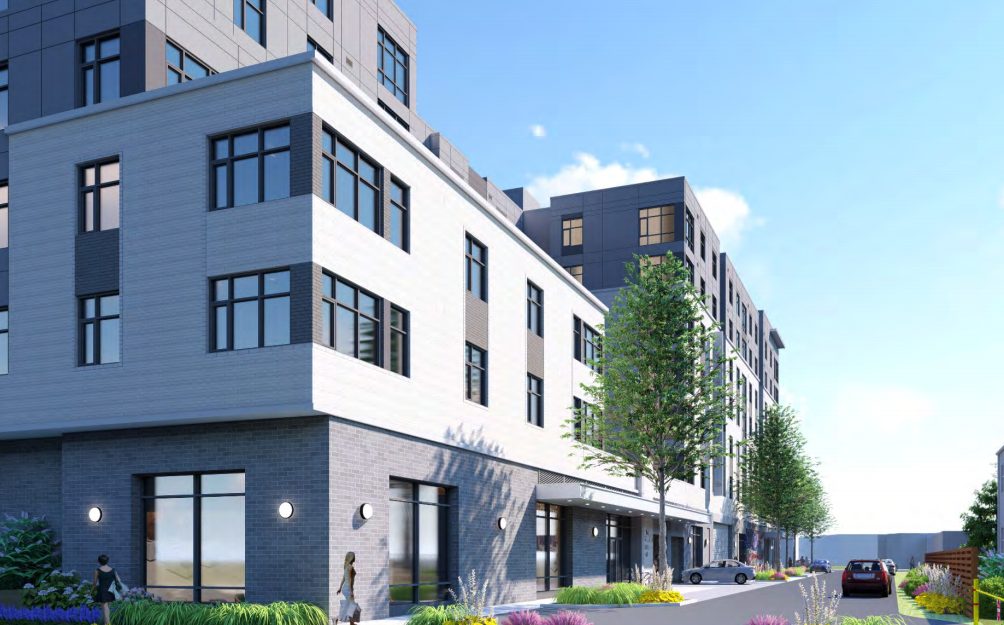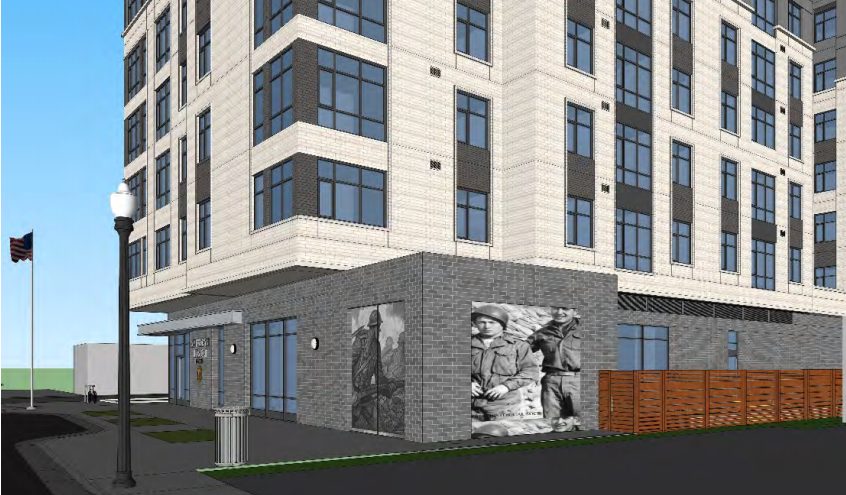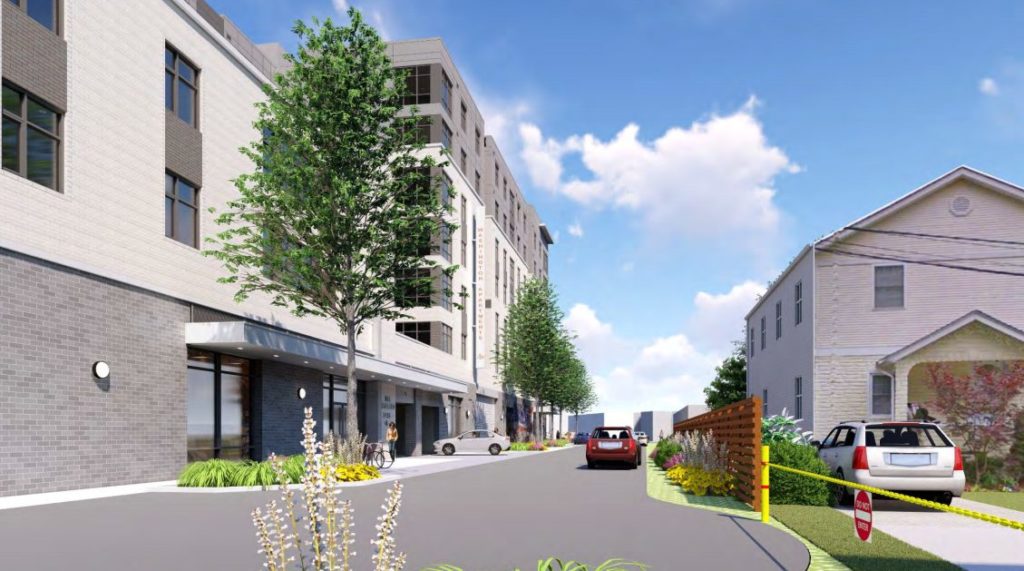As plans advance for the redevelopment of the American Legion post in Virginia Square, neighbors are raising a familiar question for developers in Arlington’s densest areas: what about parking?
The Arlington Partnership for Affordable Housing hopes to eventually buy the 1.3-acre property at 3445 Washington Blvd and transform the current home of American Legion Post 139 into a building with 160 affordable apartments. The nonprofit would set aside space on the ground floor of the development for a new Legion post, and it even plans to reserve half of its homes for veterans.
APAH has been working to make the project a reality since the American Legion agreed to these plans back in 2016, and the proposal is very nearly ready to earn some key county approvals — the county’s Site Plan Review Committee will scrutinize the project at a meeting for the third time tonight (Monday), and the group could soon advance the proposal to the Planning Commission.
But it seems the nonprofit has yet to allay the concerns of nervous Ballston and Virginia Square neighbors worried that the new development will bring more cars parking on their streets.
“We are concerned that given the number of 2- and 3-bedroom apartments planned, the expectation that families will live in them, and the fact that our neighborhood does not have access to walkable elementary or middle schools, it’s not feasible to assume residents without a car or that even one car per unit will be sufficient,” Cara Troup, the treasurer of the Ballston-Virginia Square Civic Association, wrote in a Dec. 7 email to county staff.
APAH plans to build a one-story underground garage with 96 parking spaces in total, and the developer does acknowledge that it’s providing less parking than the county’s zoning standards demand.
However, the nonprofit believes that the development’s proximity to public transit options should mean that most residents won’t rely on cars. A transportation study of the site commissioned by APAH points out that the property may not quite be along a Metro corridor, but does sit “directly across” from the busy Fairfax Drive and its nearby Virginia Square Metro station.
APAH also sought to reassure the SPRC that it generally restricts residents to one car per household and will offer them reduced rates on bikeshare memberships, according to notes from the committee’s Dec. 10 meeting.
The nonprofit plans to set aside 20 spaces to serve visitors and staff for the American Legion post specifically, so it doesn’t expect that the group’s new headquarters (set to include new space for a variety of support services for veterans) will put a strain on parking on the area. But neighbors remain convinced that there just isn’t enough room for the people who will live in the new building, perhaps prompting more cars to push for space in the neighborhoods behind the development on 13th and 14th Street N.
Many of the streets in area are already subject to parking restrictions under the county’s permit program. But zoned parking in the county only bars unauthorized cars from neighborhoods from 8 a.m. to 5 p.m. on weekdays — the program was originally designed as a way to bar commuters from D.C.-adjacent areas.
That’s prompted Troup to push for new parking restrictions running from 9 a.m. to 11 p.m. each day, in order to ensure that APAH’s new residents don’t simply drive their cars to work and then park them on nearby streets at night. She even envisions that change coming as a condition of the county approving the development.
County officials are currently eyeing changes to the residential parking program as part of a two-year study of its efficacy, likely making any such change an uphill battle. But, until that work wraps up later this year, neighbors are adamant that they want to see more parking required for developments like APAH’s new building.
“Arlington’s zoned parking regulations need to be updated to reflect these present day conditions to include restricted parking into the evenings and on weekends,” Lyon Village Citizens’ Association President John Carten wrote in a letter to county planners. “It may be the case that lifestyles and transportation options today are such that the parking ratios for certain projects do not need to be what they were in the past. However, until county parking policies are updated to increase restricted parking hours beyond the outdated business hours approach, Lyon Village and similarly situated neighborhoods are being put in a very difficult position when [asked] to support projects with parking ratios lower than historical norms.”


